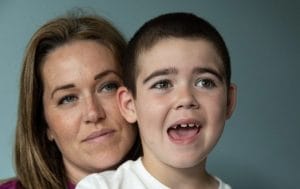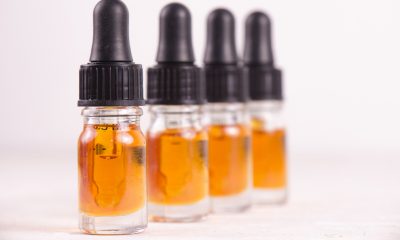Dozens of severely epileptic children could be left without access to life-saving medicine when the Brexit transition period comes to an end.
Patients have been warned that supplies of medical cannabis from Holland, which around 40 severely epileptic children and their families are completely reliant on, will be terminated from the end of this month.
In a letter sent to all UK importers, clinics and several patient groups, the Department of Health & Social Care (DHSC) stated that prescriptions issued in the UK can no longer be lawfully dispensed in an EU Member State when the Brexit transition period draws to a close on 31 December, 2020.
According to the letter this means that dispensing Bedrocan products in the Netherlands for UK prescriptions is ‘no longer an option’ from 1 January 2021.
This means dozens of patients will be left without access to cannabis oils, which have improved the quality of life of epileptic children in recent years, dramatically reducing the number of life-threatening seizures they suffer.
Since the legalisation of medical cannabis in 2018, campaigners believe that only three children have been granted an NHS prescription.
Other families have been forced to pay privately for the Dutch medical cannabis, relying on fundraising to cover the costs, which can be as high as £2,500 per month.

Hannah Deacon and son Alfie Dingley.
Hannah Deacon, mother of Alfie Dingley, who featured at the forefront of the campaigns that led to the law change and is prescribed Bedrolite on the NHS, is one of those fearing that her son’s supply of medicine will be stopped.
“This truly is the worst Christmas present I and the other families affected could ever possibly receive,” said Hannah.
“I am fortunate to have an NHS prescription for Alfie, but now I am fearful it won’t be honoured due to this letter.”
“The letter, which we received just weeks before 1 January, only adds insult to injury for these families, who are already faced with the daily struggle of attempting to find the money to privately fund private prescriptions for their child’s epilepsy. We are all now faced with the grave possibility that our children will not be able to access the form of medical cannabis that works in the New Year.”
Hannah urged Prime Minister Boris Johnson to work with the Dutch Government to come to a solution.
She continued: “We are making a desperate plea to the UK and Dutch governments to work together to find a long-term solution to this crisis. This is not about the politics of Brexit. It’s about children’s lives being at stake. I urge Boris Johnson to step in, work with the Dutch Government and help us.”

Joanne and Ben Griffiths
Joanne Griffiths, mother of 11-year-old medical cannabis patient, Ben said: “It’s been over two years of rejection to access the only medication that works for our children and now we are faced with the threat of not being able to access the medication even privately with only 13 days notice.
“We are so scared, after being in hospital over New Year, two years ago with our son, after other medication failed to help, he had up to 300 life threatening seizures a day. We can’t go back to that nightmare.”
An End Our Pain Campaign Spokesperson said: “This letter is yet another devastating blow to these families, who already experience the difficulties of caring for very sick children. Time after time, the End Our Pain families have made desperate pleas to the Prime Minister, the Health Secretary and the NHS for urgent assistance, but their needs continue to be ignored. This letter, sent so close to the transition deadline, has left us scrambling to find a solution based on very limited information.
“The termination of medical cannabis supply from the Netherlands to the UK, will be a matter of life and death for these children. It’s imperative that the Government act now to help reach a solution and help these families.”
A Department of Health and Social Care spokesperson said:
“We sympathise with patients dealing with challenging conditions and there is a range of alternative cannabis-based medicines available to UK patients.
“The decision on what treatments to prescribe to patients is rightly one for clinicians to make, on a case-by case basis and dependant on the specific needs of the individual.
“If patients have any concerns, they should discuss them with their doctor.”

 News6 months ago
News6 months ago
 Science5 months ago
Science5 months ago
 Industry6 months ago
Industry6 months ago
 News6 months ago
News6 months ago
 News5 months ago
News5 months ago
 Health5 months ago
Health5 months ago
 News5 months ago
News5 months ago
 Health3 months ago
Health3 months ago














